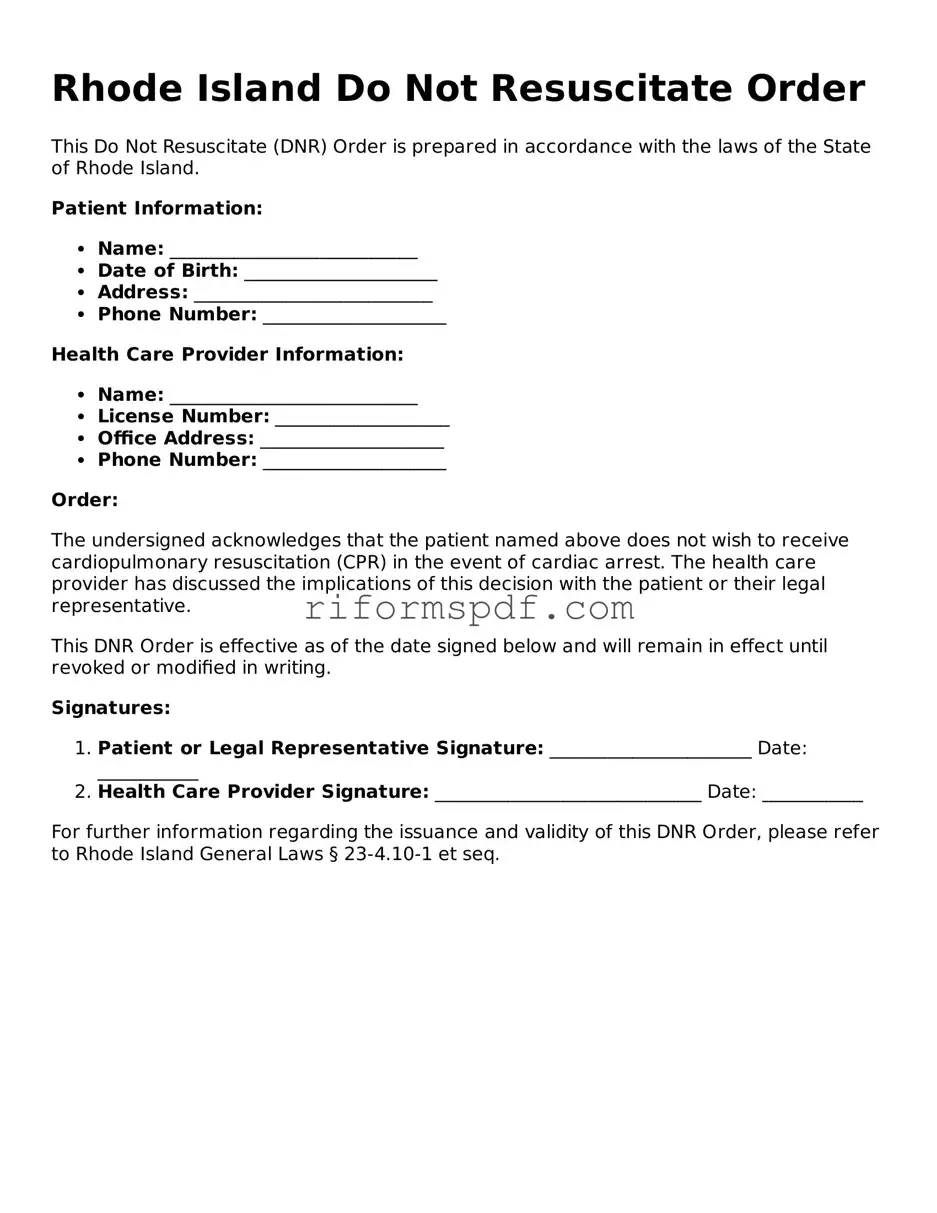Printable Do Not Resuscitate Order Form for Rhode Island
A Rhode Island Do Not Resuscitate (DNR) Order form is a legal document that allows individuals to express their wishes regarding resuscitation efforts in the event of a medical emergency. This form ensures that healthcare providers respect a patient's desire to forgo life-saving measures, focusing instead on comfort and quality of life. Understanding the implications and proper use of this form is crucial for both patients and their families in making informed healthcare decisions.
Launch Editor

Printable Do Not Resuscitate Order Form for Rhode Island
Launch Editor
Finish the form now and be done
Edit Do Not Resuscitate Order online and skip the paperwork.
Launch Editor
or
⇓ PDF Form
